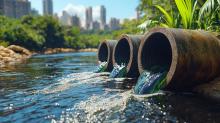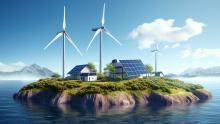Reimagining wastewater as a valuable resource

Millions of litres of water are consumed daily for industrial processes, forming a key impediment to the circular economy in Europe. To tackle this, the EU-funded ULTIMATE project developed a ‘water-smart industrial symbiosis’ concept. This effort led to new technologies and processes to extract clean water, energy and valuable materials from wastewater.









